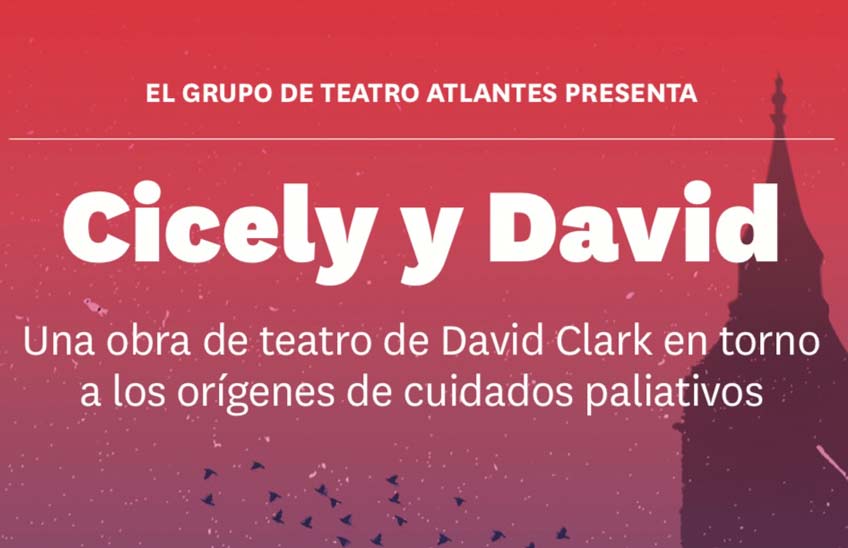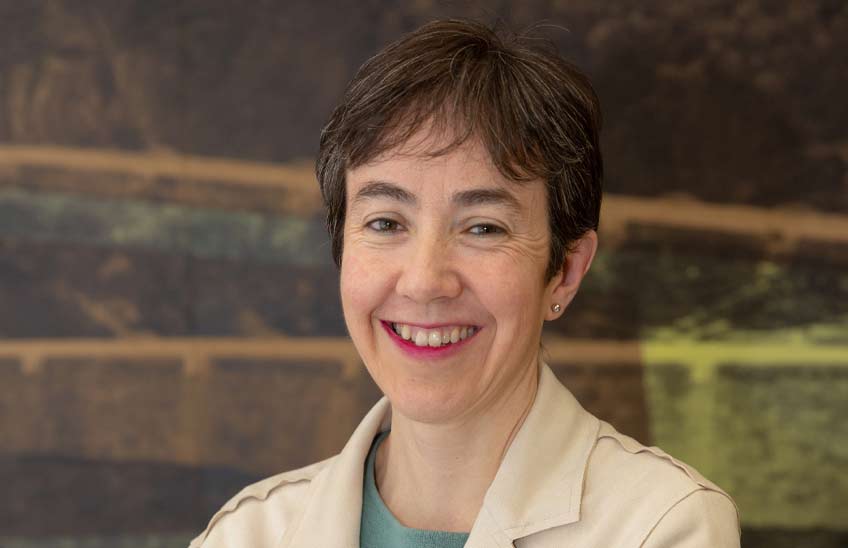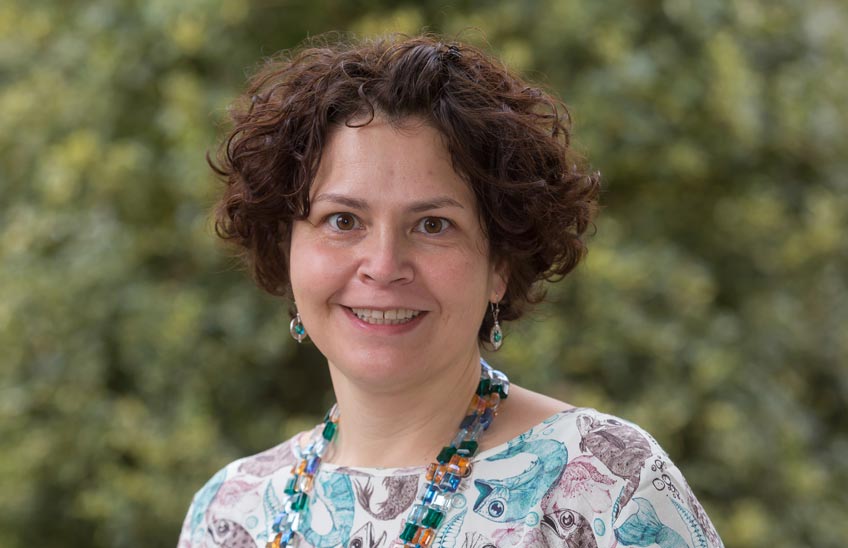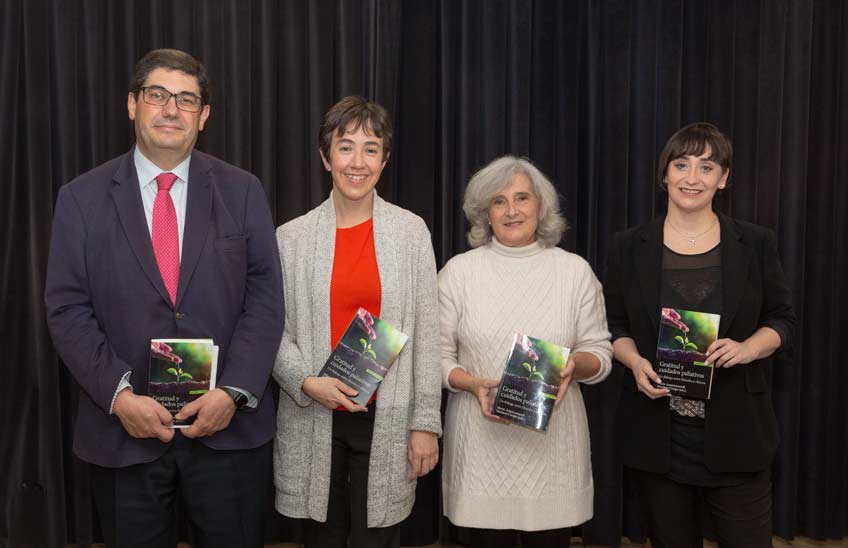"Communication technologies facilitate the expression of gratitude from patients and families to palliative care professionals and are a sample of the caring relationship created"
María Arantzamendi, researcher at the Global Observatory of Palliative Care ATLANTES of the ICS, is one of the authors of a study that has analyzed Whatsapp messages sent to health care workers.
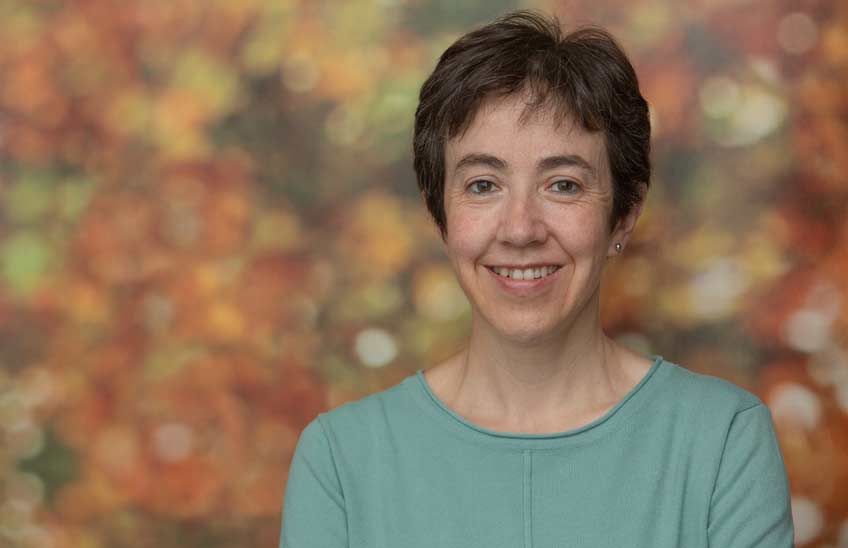
FotoManuel Castells<br>/Arantzamendi, investigadora del Instituto Cultura y Sociedad
02 | 11 | 2022
"The use of communication technologies has been incorporated into patient care and is used in follow-up and in the patient-healthcare professional relationship. It is interesting to explore its impact on the relationship". This is what María Arantzamendi, researcher at the Institute for Culture and Society (ICS) of the University of Navarra, in relation to a scientificarticle in which researchers from the Global Observatory of Palliative Care ATLANTES and Hospice La Cima participated.
"It can also facilitate recognition of the support received from healthcare professionals and enable the expression of gratitude by patients and their families toward palliative care professionals," he adds.
The team researcher analyzed 130 Whatsapp messages sent to healthcare professionals during a period in which 150 patients were treated at home. They have dealt with aspects such as which questions generated the most gratitude, who the words came from, whether they were reactive or spontaneous and who they were addressed to.
"We observed that family members gave thanks especially for characteristics of care, such as affection and availability; support from healthcare providers, such as companionship and comfort; and professional and human qualities, such as dedication, patience and kindness," says María Arantzamendi, who leads ATLANTES' project 'The phenomenon of gratitude in the field of palliative care'.
It also states that most of the expressions of gratitude in the messages studied showed appreciation for the patient's symptom control and for the support provided so that the patient could accept status and seek significance or meaning.
A positive and protective effect on professionals
Nearly 40% of the messages analyzed were sent on dates that were not special for the senders, such as Christmas, the anniversary of the death of their loved one, or on special days related to palliative care, or with news in the media that referred to this discipline.
"The study shows that family members value the professional and human support offered by healthcare teams in the care of patients with advanced and serious illnesses. This has a positive impact on the professionals, and is even protective for their psychological well-being," stresses the ICS researcher.
Specifically, the percentage of messages of gratitude expressed through Whatsapp exceeds that of other channels that have been the subject of previous research, such as letters, says María Arantzamendi. This could be, in the opinion of the researchers, because it is a faster and more immediate way.
The authors of work are framework Rodríguez, Ancu Feng, Cecilia Menjívar and Mario López-Saca, from Hospice La Cima (El Salvador); Carlos Centeno, director of department de Medicina Paliativa of the Clínica Universidad de Navarra e researcher principal of ATLANTES; and María Arantzamendi.
The Palliative Medicine line is one of the main axes of the 2025 Strategy of the University of Navarra, which promotes a social impact-orientedresearch and a scientific production focused, in this case, on the search for personalized solutions for the health care of patients with advanced and serious diseases.
Reference:
→ WhatsApp as a facilitator of expressions of gratitude for palliative care professionals.

